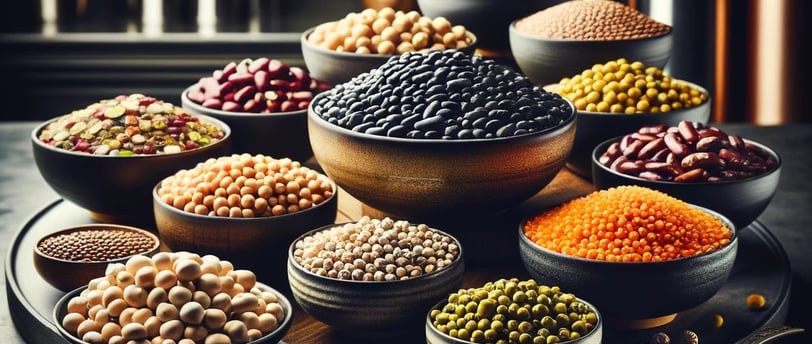Unlocking the Secret to Longevity
The Legume Legacy
FOOD


In a world where diet trends come and go with the seasons, there's one nutritional powerhouse that has stood the test of time: legumes. Often sidelined as the humble pantry staple, legumes might just be the unsung heroes of longevity and health. Let's dive into why these tiny treasures deserve a prime spot on your plate.
Legumes: Your Ticket to a Healthier Life
If you're pondering over whether to include more legumes in your diet, prepare to be convinced. For starters, legumes aren't just a health fad; they are backed by scientific research and are a cornerstone of the diets of some of the world's longest-living people.
A Handful of Health: The American Institute for Cancer Research's Take
Following the American Institute for Cancer Research's recommendation, adding a handful of legumes to each meal isn't just a good idea; it's a game-changer. From lentils to chickpeas, these little legumes pack a punch in terms of nutrition and disease prevention.
The 2004 Study: A Global Perspective on Longevity
A groundbreaking 2004 study involving researchers from around the globe, including Greece, Australia, and Indonesia, investigated the dietary habits of people aged over seventy and centenarians. Their goal? To pinpoint the dietary elements that contribute to extraordinary longevity.
What the Longest-Lived People Eat
What do the diets of the world's longest-lived people have in common? Surprisingly, it's not just about olive oil or fish; it's about the humble legume. Across various cultures, from Mediterranean to Japanese diets, legumes consistently emerged as a key component.
Legumes: The Lifespan Extenders
Regardless of lifestyle or other dietary habits, the study found a stunning correlation: every additional 20 grams of legumes consumed daily equates to an 8% reduction in mortality risk. Yes, legumes are not just food; they're longevity fuel!
The Japanese and Mediterranean Diets: A Legume Love Affair
The Japanese diet, with its miso and tofu, and the Mediterranean diet, rich in lentils, peas, and beans, both highlight the importance of legumes. These diets aren't just about taste; they're a testament to the power of plant-based proteins and phytonutrients.
Digestive Blues? Give It Time!
If legumes leave you bloated or gassy, don't fret. This isn't a sign to avoid them but rather an indication that your gut needs time to adapt. Gradually increasing your legume intake allows your digestive system to adjust and reap the full benefits of these fibrous foods.
Tips for Incorporating Legumes into Your Diet
1. Start Small: Begin with small amounts of legumes to ease your digestive system into it.
2. Diversity is Key: Explore various types of legumes – each offers unique flavors and nutritional benefits.
3. Cooking Matters: Experiment with different cooking methods to find what works best for you and enhances digestibility.
4. Snack Smart: Legumes make for a great, healthy snack option. Try hummus with veggies or roasted chickpeas.
5. Get Creative in the Kitchen: Add legumes to soups, salads, and even smoothies for an extra protein boost.
Conclusion: Embracing the Legume Lifestyle
In summary, legumes are not just another health trend. They are a cornerstone of nutritious, longevity-promoting diets across the globe. By incorporating more legumes into your meals, you're not just feeding your body; you're nurturing your longevity. So next time you're planning your meal, remember: a handful of legumes a day might just keep the doctor away. Here's to a long, healthy life with legumes as your trusty culinary companions!



